Martin picked a glass of red wine from a passing waiter, making his way to French doors opening onto a wide balcony overlooking the city. He stepped outside, feeling the warm air surround him. There were search lights in front of the hall, spanning the width of the night sky, crisscrossing each other like lancers in the night. The city’s lights reached out across the vast spread, stretching all the way out to the horizon and beyond. As beautiful as it appeared in the summer warmth, it worried him.
“Martin! Martin? What are you doing out here?” his mother asked, stepping outside.
“I wanted to get some fresh air, Mama. There’re too many people in there,” he said, kissing her cheek as she came to his side.
“You played so delicately,” she said, looking up at him with a smile.
“Thank you, Mama,” he smiled back, kissing her hand. She was a tall woman. Elegant, one might say; one could just as easily say she appeared regal with her peppered grey hair swept up into a tight bun. She wore sparkling jewels, and a silk dress. Except, Martin knew the jewels were fake and that she’d borrowed the dress from a dress-maker friend she’d known for thirty years.
“Where’s Annaliese?” he asked, looking at the French doors.
“Standing in a line.”
“A line?”
“They have lines for everything here.”
“You mean she’s waiting to use the facilities?”
“A gentleman doesn’t speak of such things.”
“Oh, please, Mama. It’s not 1900 anymore, and I’m hardly a gentleman. Would you like me to go in and fetch her?”
“Martin, please,” his mother said, and he laughed. “She’ll be fine. She’s a big girl, which is exactly why I’m leaving. Perhaps I can coerce some old, bespeckled and bemused conductor, into dancing with me?”
“Good luck to you with that,” he laughed. “And don’t forget to tell him, that you have a son this time!”
*
He said his name was Dieter—that’s what he told him three weeks later—but in the meantime he was coming outside with a tray of hors d’oeuvres he placed on the balustrade between them. He leaned back, crossed his legs, and picked up a tiny canapé, popping it into his mouth. He smiled as he did it, watching Martin closely, sucking on his fingers just a moment longer than he needed to, Martin thought.
“Do you come here often?” he said with a laugh, and Martin found himself drawn to the man’s mismatched eyes. “I find these affairs to be such a bore,” he said, exaggerating the word bore—dragging it out like a dentist pulling a tooth—and then smiled again, as if he knew he’d overstepped his bounds. “But it pays for my paints, and little else.”
He reached into his vest pocket and took out a slender cigarette case, opened it, offering one to Martin.
“Well, no one can say the National Socialists don’t know how to throw a party,” Martin said and laughed as he accepted the cigarette. “Even with the Olympics. They brought out old man Strauss to play his ‘Fanfare,’ for the world, but really, did it take your breath away like you thought it would?”
“I wasn’t there to hear it,” the man said, lighting his lighter and holding the flame out. Martin watched the light playing on the man’s face, suddenly plunged into darkness again as the lighter closed.
“They played it on the radio,” Martin insisted, tasting the tobacco and enjoying the flavour.
“I don’t pay a lot of attention to that sort of thing,” the man smiled, almost looking apologetic.
“What sort of thing? The Olympics?” Martin asked.
“Old music,” he said. “I’m more into the modern stuff the National Socialists have been trying to ban. You know, American Jazz, and that sort of thing? I’m an ardent National Socialist, but I don’t understand their dislike for dissonance in music. Do you like American Jazz?”
“I don’t know much about it,” Martin confessed.
“You should come out with me one night and listen to it.”
“Come out where?”
“To the clubs.”
“I’m not one for going out to Clubs,” he said.
“Why not?”
“I don’t have time to be frivolous.”
“Who says it’s frivolous? Although it does go against everything the National Socialist say about music, and the Arts, in general.”
“I don’t care too much about the National Socialists. To be honest, they are not my friends.”
“Sure they are. I just saw you talking to Goering,” he said with a smile. “He doesn’t just stop by and casually talk to just anyone, you know. You have to be a someone. Are you a someone, Martin Jakob?”
“I don’t know,” Martin said thoughtfully.
“Well, you must be if I know your name.”
“I suppose I am.”
“Would you still be a someone if you played in a piano bar in Paris?” he asked.
“I’ve never been to a piano bar, let alone one in Paris.”
“That’s not the question—”
“Martin?” Annaliese asked, coming through the French doors and wrapping her arms around herself.
Martin looked up at the sound of her voice, feeling guilty at having been discovered in an intimate conversation with a stranger. He looked at the man, a sense of growing panic in his eyes, and the man laughed, dropping his cigarette on the ground as he picked up his tray and left. He paused and bowed long enough to offer a canapé to Annaliese, then went back inside.
“Do you know him?” she asked, watching as the man slid through the door.
“He’s a waiter.”
“I can see that. But you were talking to him like you knew him. I thought perhaps he was a friend, but why would you be friends with a waiter?”
Martin dropped the cigarette, put his arms out and pulled her close. She smelled of talc, possibly a hint of rose water, and he’d spoiled her scent with the smell of his cigarette. The gown she was wearing did little to hide her voluptuous figure, and he let her sink into him, her head resting against his chest, nestling herself closer. He was looking out over her head though, at the French doors, thinking the man with the mismatched eyes had been the most interesting part of the night.
A part of him was sorry he’d never see him again.
*
Berlin was undoubtedly one of the more beautiful cities in Europe, Martin thought, sitting at a wrought iron table admiring the buildings around him. He adored Vienna—what’s there not to love about Vienna?—but he told himself that may have been because of its history; because it was home to Beethoven and Mozart. Berlin was welcoming. Its people were friendly. Inviting.
The sudden rise of the National Socialists and their political agenda of hatred seemed to grow more and more each year. There was a definite change in the city that he found difficult to explain, or accept. He still refused to become a card-carrying member of the Party; and while Beck did everything he could to convince him, Martin remained steadfast—resolute—although Beck said he was more stubborn than steadfast.
“It’s only a matter of time before they refuse to let you play anymore,” Beck said. They were sitting at a small curb side table enjoying pommes frites. The day was warm with a cloudless sky and a gentle breeze that stirred the leaves on the trees lining the streets. The streets themselves were crowded with people and cars, as well as trucks rumbling through the wide streets and echoing through narrow alleyways.
“They want someone who is more willing to prove himself by joining the Party, not someone who refuses to,” Beck added, finishing his beer.
“And what exactly does that mean?” Martin asked. “Someone who is more willing to prove himself?”
“That you might not be playing recitals in the city anymore.”
“I believe someone said, a long time ago: ‘All the world’s a stage.’ If I can’t play here, I’ll play elsewhere.”
“And what if they don’t let out?”
“What do you mean?”
“They might not let you out of the country. They can easily lose your paperwork.”
“What if I’m invited to perform elsewhere? Say in Vienna? Or Prague? Or maybe Paris? They love me in Paris.”
“You want them to love you in Berlin.”
“They do love me in Berlin.”
“You want the right people to love you in Berlin,” he added, waving at the waiter and holding his empty glass up.
“The right people being members of the Party?” Martin asked, suddenly serious.
“It can’t do you any harm becoming a member of the Party.”
“I can’t see it doing me any good, either,” Martin smiled.
“And what’s wrong with the National Socialists?” Beck asked, as the waiter brought two more beers.






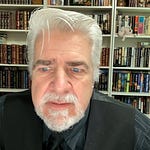

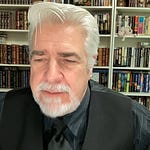

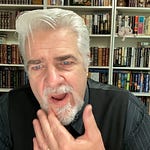

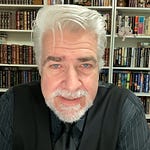





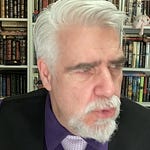
THE TRUTH OF WHO WE ARE